| Eueretagrotis | |
|---|---|
 | |
| Eueretagrotis perattenta | |
| Scientific classification | |
| Domain: | Eukaryota |
| Kingdom: | Animalia |
| Phylum: | Arthropoda |
| Class: | Insecta |
| Order: | Lepidoptera |
| Superfamily: | Noctuoidea |
| Family: | Noctuidae |
| Genus: | Eueretagrotis Smith, 1890 |
| Eueretagrotis | |
|---|---|
 | |
| Eueretagrotis perattenta | |
| Scientific classification | |
| Domain: | Eukaryota |
| Kingdom: | Animalia |
| Phylum: | Arthropoda |
| Class: | Insecta |
| Order: | Lepidoptera |
| Superfamily: | Noctuoidea |
| Family: | Noctuidae |
| Genus: | Eueretagrotis Smith, 1890 |
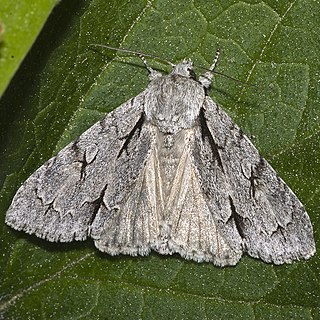
Acronicta is a genus of noctuid moths containing about 150 species distributed mainly in the temperate Holarctic, with some in adjacent subtropical regions. The genus was erected by Carl Linnaeus in his 1758 10th edition of Systema Naturae. Caterpillars of most Acronicta species are unmistakable, with brightly colored hairy spikes, and often feed quite visibly on common foliate trees. The hairy spikes may contain poison, which cause itchy, painful, swollen rash in humans on contact. The larva of the smeared dagger moth is unusually hairy even for this genus. Acronicta species are generally known as dagger moths, as most have one or more black dagger-shaped markings on their forewing uppersides. But some species have a conspicuous dark ring marking instead.

Apamea is a genus of moths in the family Noctuidae first described by Ferdinand Ochsenheimer in 1816.

Pyrausta is a speciose genus of moths of the family Crambidae. The genus was erected by Franz von Paula Schrank in 1802.

Abagrotis is a genus of moths of the family Noctuidae.

Anarta is a genus of moths of the family Noctuidae.

Annaphila is a genus of moths of the family Noctuidae. The genus was erected by Augustus Radcliffe Grote in 1873.
Bellura is a genus of moths of the family Noctuidae.

Euxoa is a genus of moths of the family Noctuidae raised to Genus by the German entomologist, Jacob Hübner. The Genus is mostly confined to dry and semi dry areas in the Northern Hemisphere. There 130 species in Eurasia, a few in Africa, and 175 in North America. There are no species in the Genus in South-East Asia or in Australia. In North America, most species are found in Western regions. Of the North American species, 4 are endemic to Mexico. There is one species recorded from Chile, but this may be a mislabeled specimen. In real terms, species numbers do not equal species abundance. Some areas with few species have large numbers of the ones that do live there.
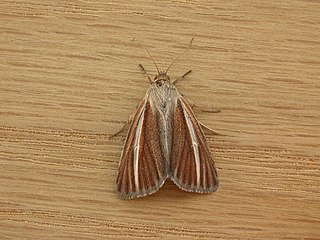
Heliocheilus is a genus of moths of the family Noctuidae. Former synonyms include Canthylidia.

Lithophane is a genus of moths of the family Noctuidae. They spend the winter as adults. Some species are capable of feeding on other caterpillars or on sawfly larvae, which is rather uncommon among Lepidoptera.
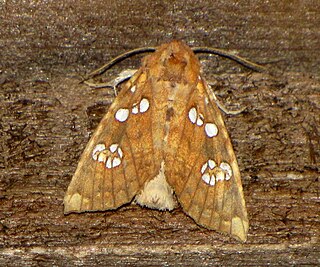
Papaipema is a genus of moths of the family Noctuidae. The genus was erected by John B. Smith in 1899.

Plagiomimicus is a genus of moths of the family Noctuidae. The genus was erected by Augustus Radcliffe Grote in 1873.

Spragueia is a genus of moths of the family Noctuidae. The genus was erected by Augustus Radcliffe Grote in 1875.
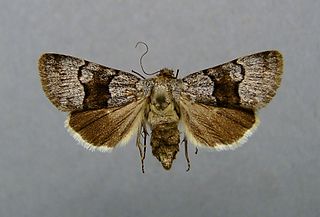
Sympistis is a genus of moths of the family Noctuidae. The genus was erected by Jacob Hübner in 1823.

Syngrapha is a genus of moths of the family Noctuidae.

Smerinthini is a tribe of moths of the family Sphingidae. The genus was erected by Augustus Radcliffe Grote and Herbert C. Robinson in 1865.
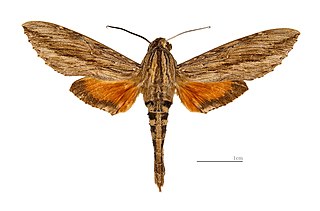
Dilophonotini is a tribe of moths of the family Sphingidae described by Hermann Burmeister in 1878.
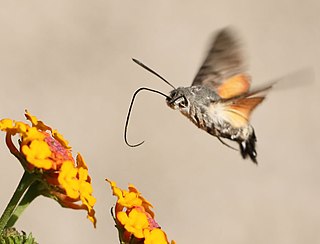
Macroglossini is a tribe of moths of the family Sphingidae described by Thaddeus William Harris in 1839.
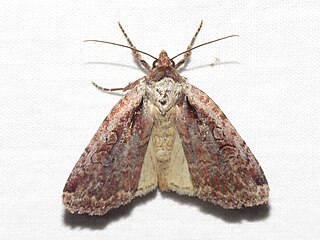
Eueretagrotis attentus, the attentive dart or daggered heath dart, is a species of moth in the family Noctuidae. It is found in North America from Nova Scotia to Saskatchewan and adjacent northern states, south in the Appalachians to Great Smoky Mountains National Park. There is one record from northern Georgia.
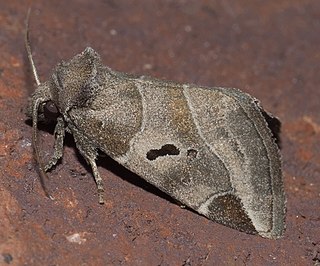
Stiriinae is a subfamily of owlet moths in the family Noctuidae. There are more than 20 genera and 130 described species in Stiriinae.